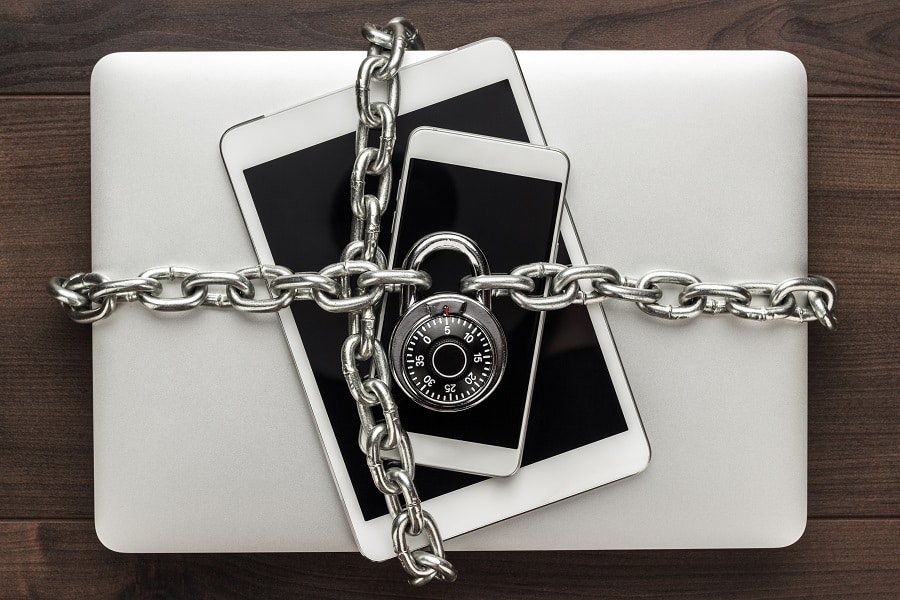As more and more of your day-to-day life moves online, it becomes increasingly important to protect your personal information. Unfortunately, hackers are becoming increasingly sophisticated in obtaining sensitive data and can use your information for identity theft, financial fraud, and other malicious activities. That is why you need to take precautions to protect yourself. And this article will show you some of the steps that you can take to keep your information safe when using the internet.
Contents
- 1 Why Your Personal Information Is Valuable
- 2 Tips To Protect Your Personal Information Online
- 3 Create Strong Passwords
- 4 Use Two-Factor Authentication
- 5 Use Encrypted Chats
- 6 Configure Your Privacy Settings
- 7 Close Accounts You Don’t Use
- 8 Update Your Security Software
- 9 Take Steps To Protect Your Personal Information Online!
Why Your Personal Information Is Valuable

Your personal information is valuable to hackers for a number of reasons. First, it can be used to gain access to your financial accounts. By obtaining your Social Security number or credit card information, hackers can empty your bank account or rack up substantial credit card debt in your name. Additionally, your personal information can be used to commit identity theft. This is when someone uses your information to pose as you to obtain goods or services.
Hackers may also sell your personal information on the black market. There, it can be used by other criminals for various purposes. Finally, hackers may use your personal information to embarrass or blackmail you. As you can see, there are many reasons your personal information is valuable to hackers. Consequently, it’s important to protect yourself from online predators.
Tips To Protect Your Personal Information Online
Oftentimes, people assume that their personal information is only at risk when they are using public Wi-Fi or clicking on links in emails from unknown senders. However, there are many other ways that hackers can obtain your sensitive data. Here are some tips to help you protect your personal information online:
Create Strong Passwords

In today’s digital age, it’s more important than ever to keep your personal information safe and secure. One way to do this is by creating strong online accounts. A strong password should be at least eight characters long and include a mix of uppercase and lowercase letters, numbers, and symbols. Avoid using easily guessed words or personal information, such as your birthdate or pet’s name, is also important.
Finally, changing your passwords regularly and using different passwords for each account is a good idea. Following these simple tips can help protect your personal information and keep your online accounts safe.
Use Two-Factor Authentication

In an age where data breaches are becoming more and more common, it’s important to take steps to protect your online accounts. One way to do this is to enable two-factor authentication (2FA). 2FA adds an extra layer of security by requiring you to enter a code from your phone in addition to your password when logging into an account. This makes it much harder for hackers to gain access, even if they have your password.
In addition, 2FA can also help to prevent phishing attacks, as attackers will not be able to log in even if they have your credentials. While 2FA may seem like an inconvenience, it’s well worth the effort to have your personal information remain protected!
Use Encrypted Chats

You may not be thinking about protecting your personal information in your chat conversations. However, it’s important to be aware that hackers can intercept unencrypted chat messages and use them to obtain sensitive information. One way to avoid this is by using encrypted chat services. Encryption scrambles your data so that the intended recipient can only read it. Even if your chat messages are intercepted, they would be unreadable without the encryption key.
Encrypting your chats can help you keep your personal information safe and secure. In addition, encrypted chats can also be helpful if you’re concerned about someone monitoring your conversations. Since the contents of your chats would be unreadable, anyone trying to snoop on your conversations would be unable to understand what you’re saying. As a result, using an encrypted chat service can give you a much-needed sense of privacy and security.
Configure Your Privacy Settings

Most internet users know the importance of protecting their personal information online. However, many people don’t take the time to configure their privacy settings to safeguard their data. While it may require some effort to set up, doing so can help keep your information safe from prying eyes. One way to protect your personal information is to adjust the privacy settings on your social media accounts. For example, you can choose who can see your posts and photos and what information is visible to the public.
You can also control who can contact you and whether or not strangers can find you on the internet. By adjusting your privacy settings, you can help keep your personal information safe from unwanted attention.
Close Accounts You Don’t Use

Hackers are constantly looking for new ways to access sensitive data, and even the most cautious person can be caught off guard. Another way to reduce your identity theft risk is to close any accounts you no longer use. This may seem like a hassle, but knowing that your information is safe is worth it. Inactive accounts are often targets for hackers because they are easier to break into. Closing these accounts makes it more difficult for thieves to access your data.
Furthermore, closing unused accounts can help to improve your credit score. The fewer open lines of credit you have, the lower your risk of defaulting on a loan. As a result, closing inactive accounts can provide peace of mind and financial security.
Update Your Security Software

When protecting yourself online, your security software is often your first line of defense. However, it’s important to keep your security software updated to ensure that you’re protected from the latest threats. Many security software programs offer automatic updates, so you can be sure that you’re always using the most recent version. In addition, some programs will also provide timely alerts if a new security threat is detected.
However, it is better to be proactive and check for updates regularly. This way, you can be sure that your security software is always up to date. It also allows you to take advantage of new features as they become available.
Take Steps To Protect Your Personal Information Online!
Staying safe online requires vigilance and effort. However, taking the necessary precautions can help protect your personal information from identity theft and other threats. By incorporating all of these measures, you can create a safe and secure online environment for yourself and your family. And if you ever do become a victim of identity theft or other cybercrime, make sure that you report it to the proper authorities. They will work with you to ensure that you get your identity back and help you take steps to prevent it from happening again.


